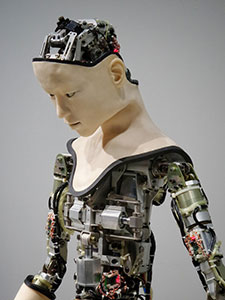 Much attention is focused on AI and robots replacing people in their jobs. While it will happen, and is happening to some degree already, the process is more evolutionary than instantly implemented. As it applies to the future of recruitment, the AI transition might actually benefit recruiters short-term before having a negative impact.
Much attention is focused on AI and robots replacing people in their jobs. While it will happen, and is happening to some degree already, the process is more evolutionary than instantly implemented. As it applies to the future of recruitment, the AI transition might actually benefit recruiters short-term before having a negative impact.
The successful examples of AI and recruitment automation in the hiring process focus on low-skill, entry-level jobs or jobs easily defined by a few words, computer languages or credentials that candidates have achieved. The recruitment for higher-end jobs will someday be similarly automated. That time is not here yet.
Recruitment’s current foundational tools, the resume and the job description, are what AI uses to complete a match. Recruiters also use the resume and job description with the added advantage of being able to talk directly to candidates and hiring managers to eliminate false positive matches and exclusions of viable candidates. A great AI tool, with proper controls on the titles and skills to be matched, can easily do the job of making the easy matches.
The real opportunity for recruiters is to find a way to reduce the non-value added time they spend doing routine things that automation can do with similar results. The “found” time can be applied to areas of recruitment where AI would be incapable of delivering a result. The basic “source, transact, and repeat” recruiter will be history in short-order. Those recruiters are just engaging the active candidate pool for the most part anyhow. Someone will still need to motivate and engage the passive candidate. Someone will need to dig into and point out the reason a future with one company is desirable to the continuation with the existing employer. Not all candidates/employees will self-discover these opportunities.
Automation can be viewed as something to fear or we can accept the fact that it will become a reality and build a plan to integrate it into our models for recruitment. AI is impacting legal, medical, transportation and many other fields with professionals working complex knowledge-based assignments. Sourcing, recruiting, screening, and selection will not be missed by the progression of automation. So build automation into your process. Use automation as a way to enlarge your hours to do the deeply human parts of recruitment.
So will there be a need for recruiters? Absolutely, but the work performed by recruiters needs to be the part of recruitment that automation cannot do. Take a look at where you spend your time today. Find more ways to shift routine work to automation and spend more time doing the real work of engaging and motivating passive candidates. Use automation to make you more effective and available for the tough part of recruitment. If you recruit for simple, routine, or hourly jobs, start to evolve your desk to a more complex and sophisticated niche and the jobs that are in big demand in those areas.
AI and automation should not be feared but rather respected and used. Allow technology to shape what your desk, your firm and your recruitment success will be in 10 years’ time. Start small, but start!